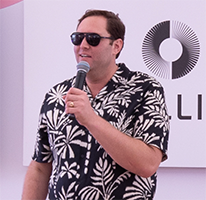Last week’s terrorist incidents are going to put additional pressure on direct marketers to use personal information responsibly, now that consumers have seen just how much information the government has on them, according to Marty Abrams, a privacy specialist with the Atlanta law firm of Hunton & Williams.
Abrams predicted that the government would probably increase its use of things like customer relationship management and predictive modeling technology to track the behavior of individuals.
“In the last week, people’s perceptions about what information they want the government to know have changed radically,” he said. “Everybody wants to know everything about the person they sit next to on the plane.”
He conceded he did not know exactly how this was going to play out.
A day after the terrorist attacks last week, U.S. Attorney General John Ashcroft asked Congress to pass new laws to help investigate last Tuesday’s attacks by hijacked passenger airplanes on the World Trade Center and the Pentagon.
For their part, privacy advocates are blasting the administration for trying to ram through more restrictive versions of already strong existing laws that could potentially further encroach on personal privacy.
The advocates have urged the administration to take a slower and more reasoned approach to drafting such laws, but agreed that current legislative efforts to safeguard individual privacy are likely to be shelved for a while.
“There are many laws already on the books that already empower the government to track fugitives and follow their banking and credit card activities,” said Evan Hendricks, editor and publisher of the Washington, DC-based Privacy Times. “That’s why the Bush administration has made such moderate proposals.”
Current phone wiretapping laws, revised in 1996 to track individuals on the run as opposed to just in one physical location, also apply to the Internet, added Robert Ellis Smith, publisher of the Privacy Journal, Providence, RI.
Meanwhile, news reports have already surfaced that some firms, including Internet service providers, telephone companies, airlines and car rental companies, have breached their own privacy policies in response to the terrorist attacks.
But Hendricks noted that “Americans have this idea that they have to trade privacy for security, but they don’t really have to do this.” Industry watchers agreed that consideration of marketing privacy legislation is likely to be put off for some time now but some good could some out of the terrorist attacks.
“We know that when countries give up liberties, they make sacrifices, not tradeoffs, and what is lost may never be recovered,” said Mark Rotenberg, president of the Electronic Privacy Information Council, Washington, DC, in a statement. “In the days ahead, let us move forward together to safeguard that which is most precious–a system of government, the rule of law, and the principle of freedom that seeks to protect the rights of each person and the security of us all.”
 Network
Network


